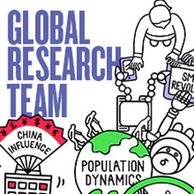Recent advances in gene editing have generated significant interest, not only among the scientific community, but also in the wider media. While the technology, which involves modifying a cell’s DNA, is still at an early stage of development, it has a wide range of potential applications. These include advances in health care, agrochemical production, livestock and crop breeding, and even DNA-based data storage.
In this blog, we discuss the current state of development of this technology, and explore some of the investment opportunities within the health-care sphere.
What Is Gene Editing?
In a practical sense, gene editing is the use of ‘molecular scissors’ to cut DNA and enable genetic sequences to be added, deleted or inactivated within a cell. This is made possible by using a well-characterized enzyme called ‘CRISPR-Cas9’ (hereafter called Cas9), linked to a targeting mechanism. The Cas9 scissors, together with normal cell-repair mechanisms, enable precise cutting and manipulation of DNA in living cells. Other DNA-editing methods have been developed, but the ease of use and relatively low cost of the Cas9 system has ensured its wider adoption.
As with many early-stage technologies, the issue of who controls the key patents to the technology is still being worked through. Other issues such as the risks of off-target effects in cells and the durability of the changes that are made still need to be ironed out, but it’s already clear that gene editing has the potential to change the way some diseases will be treated.
Much of this work has yet to reach the clinic, but early work in some diseases is now beginning to be explored. As gene editing can precisely change a gene’s function, its early use is being focused on patient groups where single-gene changes could provide a material benefit. These include diseases such as beta-thalassemia, sickle-cell disease, and enzyme-storage diseases such as mucopolysaccharidosis. Although these diseases represent relatively small groups of patients, they have very high unmet needs. Evidence that the technology can be used safely and effectively in these patient groups may open up its use in other areas such as the treatment of cancers and infectious diseases such as HIV.
The China Dimension
Much of the recent focus for investors has been on the progress being made by leading U.S. and European companies. However, gene editing in China is also progressing rapidly owing to lower regulatory requirements and active support from the government. For example, at the beginning of this year there were already reports of a number clinical studies testing Cas9-edited cells to treat various cancers. While it appears Chinese regulators may currently be more lax than their U.S. counterparts, it seems highly likely that more stringent controls on the use of these investigational therapies will be introduced if the trials prove effective.
Investment Implications
Several biotechnology companies have already been established to exploit this technology, and a number of global biopharmaceutical companies are showing an interest in this area. The development and application of gene editing will clearly be associated with near-term risks while its usefulness becomes more broadly established. However, as with many disruptive technologies, we believe it offers significant investment potential. Our in-depth sector research and engagement with companies suggests a number of businesses are positioned to benefit from gene editing.
This is a financial promotion. Material in this publication is for general information only. The opinions expressed in this document are those of Newton and should not be construed as investment advice or recommendations for any purchase or sale of any specific security or commodity. Certain information contained herein is based on outside sources believed to be reliable, but its accuracy is not guaranteed. You should consult your advisor to determine whether any particular investment strategy is appropriate. This material is for institutional investors only. Any reference to a specific security, country or sector should not be construed as a recommendation to buy or sell this security, country or sector. Please note that strategy holdings and positioning are subject to change without notice.
Important information
This is a financial promotion. Issued by Newton Investment Management Limited, The Bank of New York Mellon Centre, 160 Queen Victoria Street, London, EC4V 4LA. Newton Investment Management Limited is authorized and regulated by the Financial Conduct Authority, 12 Endeavour Square, London, E20 1JN and is a subsidiary of The Bank of New York Mellon Corporation. 'Newton' and/or 'Newton Investment Management' brand refers to Newton Investment Management Limited. Newton is registered in England No. 01371973. VAT registration number GB: 577 7181 95. Newton is registered with the SEC as an investment adviser under the Investment Advisers Act of 1940. Newton's investment business is described in Form ADV, Part 1 and 2, which can be obtained from the SEC.gov website or obtained upon request. Material in this publication is for general information only. The opinions expressed in this document are those of Newton and should not be construed as investment advice or recommendations for any purchase or sale of any specific security or commodity. Certain information contained herein is based on outside sources believed to be reliable, but its accuracy is not guaranteed. You should consult your advisor to determine whether any particular investment strategy is appropriate. This material is for institutional investors only.
Personnel of certain of our BNY Mellon affiliates may act as: (i) registered representatives of BNY Mellon Securities Corporation (in its capacity as a registered broker-dealer) to offer securities, (ii) officers of the Bank of New York Mellon (a New York chartered bank) to offer bank-maintained collective investment funds, and (iii) Associated Persons of BNY Mellon Securities Corporation (in its capacity as a registered investment adviser) to offer separately managed accounts managed by BNY Mellon Investment Management firms, including Newton and (iv) representatives of Newton Americas, a Division of BNY Mellon Securities Corporation, U.S. Distributor of Newton Investment Management Limited.
Unless you are notified to the contrary, the products and services mentioned are not insured by the FDIC (or by any governmental entity) and are not guaranteed by or obligations of The Bank of New York or any of its affiliates. The Bank of New York assumes no responsibility for the accuracy or completeness of the above data and disclaims all expressed or implied warranties in connection therewith. © 2020 The Bank of New York Company, Inc. All rights reserved.





